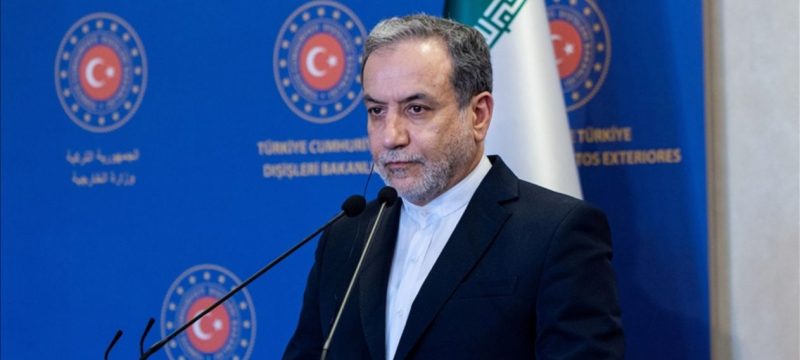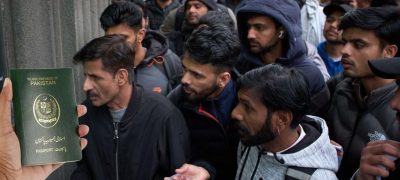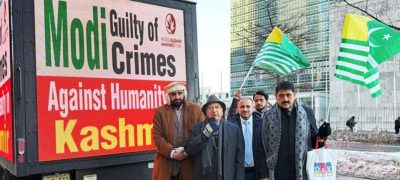Iranian Foreign Minister Abbas Araghchi firmly denied reports suggesting Tehran had engaged in any ceasefire negotiations with Israel, stating that Iran only paused its retaliatory actions after Israel unilaterally ceased its aggression. He emphasized that this halt came without preconditions and out of Israel’s “desperation.”
In a televised interview, Araghchi clarified that Iran’s position during the recent 12-day conflict, which began on June 13, was consistent: Iran would only stop its military response if Israel fully ended its offensive. He said this condition was eventually met by Israel, prompting Iran to stop its strikes—not through negotiations, but through strategic calculation.
Read more: US Officials Say Iranian Nuclear Facilities Hit in Recent Military Strikes
“The Zionist entity pleaded for an end to our counterattacks after realizing it could no longer endure the damage we inflicted,” Araghchi said. “There were no talks or truce agreements—just a response to their unilateral halt in aggression.”
He warned that any future Israeli provocation would trigger an immediate and powerful response from Tehran. His statement echoed sentiments expressed by Iran’s military leadership, including Major General Abdolrahim Mousavi and IRGC Commander Major General Mohammad Pakpour.
Israel’s Peace Claims Doubted
Araghchi expressed deep mistrust toward Israel’s intentions, pointing to its repeated violations of ceasefire agreements in Gaza and Lebanon. He said Israel often uses truce announcements to regroup or deceive the opposition.
“This isn’t Lebanon—Iran will respond decisively to any breach,” he warned.
Nuclear Talks with U.S. Under Review
Addressing the state of indirect nuclear negotiations with the United States, Araghchi said the talks, suspended following the conflict’s outbreak, were being reassessed by Tehran.
He explained that the sixth round of discussions in Muscat had been scheduled just two days after the conflict erupted. “We are reviewing whether it’s in our national interest to return to the table,” he said.
He criticized the U.S. government for continuing to pressure Iran over its nuclear activities, dismissing these accusations as unfounded and politically motivated. Araghchi also dismissed recent remarks by the U.S. president as unworthy of serious attention.
Strong International Backing
Araghchi highlighted the broad international support Iran received during the conflict. He said various regional and international groups—including the Organisation of Islamic Cooperation (OIC), the Persian Gulf Cooperation Council (GCC), the Shanghai Cooperation Organization (SCO), and BRICS nations—backed Iran’s position.
“This shows Iran is no longer isolated. We are now firmly part of the international dialogue and recognized for our legitimate stance,” he added.
Strike on U.S. Base Was a Message, Not a Threat to Gulf States
Regarding Iran’s missile attack on a U.S. military base in Qatar in retaliation for American strikes on Iranian nuclear facilities, Araghchi stressed that the action was directed solely at the United States.
He said Iran had warned Gulf countries in advance and clarified that any response would target U.S. operations conducted from their territories, not the host nations themselves.
“I met with all six GCC foreign ministers prior to the operation and explained our position clearly,” he said. “Our message was not a threat—it was a statement of deterrence.”
He acknowledged the frustration of some Gulf nations but emphasized that Iran maintained open communication and had even shown solidarity with Qatar. During the emergency GCC meeting in Doha, he said he personally requested his name be added to the statement of support for Qatar.
Furthermore, Araghchi revealed Iran had concrete proof that U.S. bases in the region were being used to support Israeli military activities—sometimes without the knowledge or consent of the host countries.
Commitment to Regional Peace
Concluding the interview, Araghchi reiterated Iran’s commitment to peace and cooperation in the region. He said Tehran’s foreign policy is focused on strengthening ties with neighboring countries and fostering collective progress.
“Our message to the region is one of peace, unity, and collaboration,” he stated. “We aim to build a future together—free from foreign interference.”









